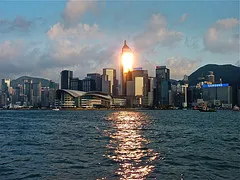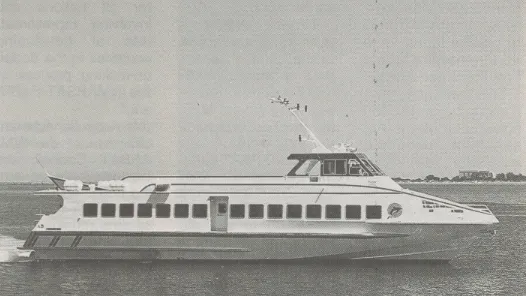
Hong Kong’s growth to plummet in 2012
UBS warns the country may hit rock bottom in 1Q12.
As GDP is expected to slow to 1.6% from this year's estimated 4.5%.
Here’s more from UBS:
| Downside growth risks. We expect real GDP to slow to 1.6%y/y next year—which is below consensus and blow trend—from an estimated 4.5% in 2011. Hong Kong has already endured two quarters of growth disappointment (GDP contracted 0.4%q/qsa in 2Q11 followed by almost no growth in 3Q11), driven predominately by a sharp export slowdown as the European sovereign debt crisis weighed on the external sector. The domestic economy remained resilient, for now, albeit slowing at the margin. But as the export downturn deepens and persists, it will eventually trickle down to domestic demand. If history is any guide, a protracted slowdown typically lasts about 4 quarters (four quarters of sequential contractions or below trend growth), and therefore 1Q12 may well mark the cyclical bottom. But the risk is that with Europe likely slipping into a recession in 1H12, and the negative financial feedback from an unresolved European debt crisis lingering, Hong Kong’s economy could stay weaker for longer. A moderate easing in inflation. 2011 was the year when inflation surprised on the upside and captured most of the headlines. For 2012, we expect inflation to ease, but to a still high 4%y/y. There are two major drivers of Hong Kong’s inflation: 1) imported price pressures, driven by Chinese inflation and global commodity prices; 2) housing inflation, a direct pass through from residential property price increase. The good news is imported inflation has already peaked, reflecting the moderation in global commodity prices and Chinese inflation, though it is unlikely to collapse. The not so good news is housing inflation (32% of the CPI basket) probably won’t peak until 4Q11, as the lagged impacts of rising property prices continue to filter through. Even beyond the peak, housing CPI could continue to linger above 5% until 2H12. Downward pressures on property prices. Real interest rates will remain negative in 2012, as inflation continues to hover above 3% but the interbank rate remains very close to zero until 2013, when our US economists expect the Fed to start hiking rates. The loose liquidity backdrop should traditionally prove positive to asset prices, in particular property. But we think most of the positive drivers—supply shortage, record low mortgage rates; an improving labour market; rising household income—have already turned the corner. This, plus the government’s macro prudential measures (which are unlikely to be unwound any time soon), suggest the pressures on property prices are likely on the downsides in 2012.
|








![Cross Domain [Manu + SBR + ABF + ABR + FMCG + HBR + ]](https://cmg-qa.s3.ap-southeast-1.amazonaws.com/s3fs-public/styles/exclusive_featured_article/public/2025-01/earth-3537401_1920_4.jpg.webp?itok=WaRpTJwE)









 Advertise
Advertise


